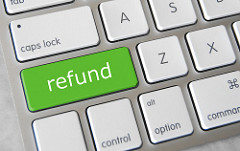Why Max Contributions Can Be A Bad Idea By Don Fletcher

Why Max Contributions Can Be A Bad Idea By Don Fletcher
As per Don Fletcher, we hear it all the time: “Save as much as possible! Max out your contributions!”.
Why do we hear it all the time, though? According to a study done by the Insured Retirement Institute, almost 45 percent of Baby Boomers have zero savings. The ones that have saved, about more than 25 percent have less than 100K saved up.
This is why for many people in the situation of no savings or very little think it could be a great idea to contribute as much as possible to your IRA or 401(k). However, Don Fletcher said this may or may not be a great idea, depending on your situation.
So when is the maximum saving a bad idea? If you have other financial matters that need taking care of but focus on saving for retirement, this may take a bit out of your savings in the future.
Other than putting money aside for your retirement years, there are two other financial goals you may need, such as creating an emergency fund and paying off debt.
If you do not have extra cash around for when an emergency comes up or you are paying the minimum on high-interest debt, it may be in your best interest to make these your priorities first as per described by Don Fletcher.
Maximizing Contributions and Debt
Having debt with high interest is very bad for your financial health. Currently, the average interest rate for a credit card is around 17 percent a year, while your yearly return rate on your retirement investments maybe around 7 to 10 percent. If you are in the situation where you are paying more interest on your debt than what you are earning from your retirement savings, it is better that you address the high-interest rate first.
According to the Federal Reserve Bank, for emergency funds, only 61 percent of Americans can pay for an emergency expense of $400. That means that 39 percent of people will have to borrow money from their retirement accounts or use a credit card to cover this expense.
Don Fletcher on Thrift Savings Plan Distributions
Touching your 401(k) or TSP before you are 59 and a half will have a tax penalty of 10 percent on top of the taxes you already for the amount you withdraw. If you do not have an emergency stash, you might be going backwards if you have to withdraw from your savings accounts. This is why you should ensure that you have emergency savings funds for unexpected situations.
So how can you balance all of these crucial financial matters? It is critical to save up for retirement, but also essential to pay off debt and have money in case of an emergency. So in which order should you save up for these things?
If you have an employer-sponsored 401(k) or Thrift Savings Plan and they offer matching contributions, put in enough to get the full match as this essentially is free money. After that is taken care of, review all of your debt and see which has the highest interest and prioritize paying that down first. Ensure that you are paying what you need to for your other lower interest debt, but getting rid of your high-interest debt will save you money in the long run.
Finally, sit down and figure out how much you need to save in your emergency fund. Many financial professionals advise having enough money to get you through 3 to 6 months of your monthly expenses. However, save only as much as you can. If that means even $20 a month, that’s fine. Just start somewhere.
Figure out how much money you have available each month to put toward your financial goals. Once you set aside what you will contribute to receive a full match, then prioritize that amount to where you’ll put your focus first. If you have a ton of debt with super high interest, be sure to put that as your first main goal to take care of as soon as possible. If you have low-interest debt but nothing for emergencies, start putting money away for those unexpected expenses.
After you have, most of your debt with high interest paid down, and you have enough savings in your emergency fund to cover you a few months, you can then begin to maximize your retirement contributions. That way, you won’t have high-interest rates or unexpected costs tripping you up as you save up for your future.
About Don Fletcher: Federal Retirement Expert
Don Fletcher has years of experience helping federal employees maximize their retirement benefits. Helping thousands of federal employees through hundreds of seminars and one-on-one federal retirement benefit analysis. Contact Don Fletcher at www.don4fers.com or (469) 358-1913







